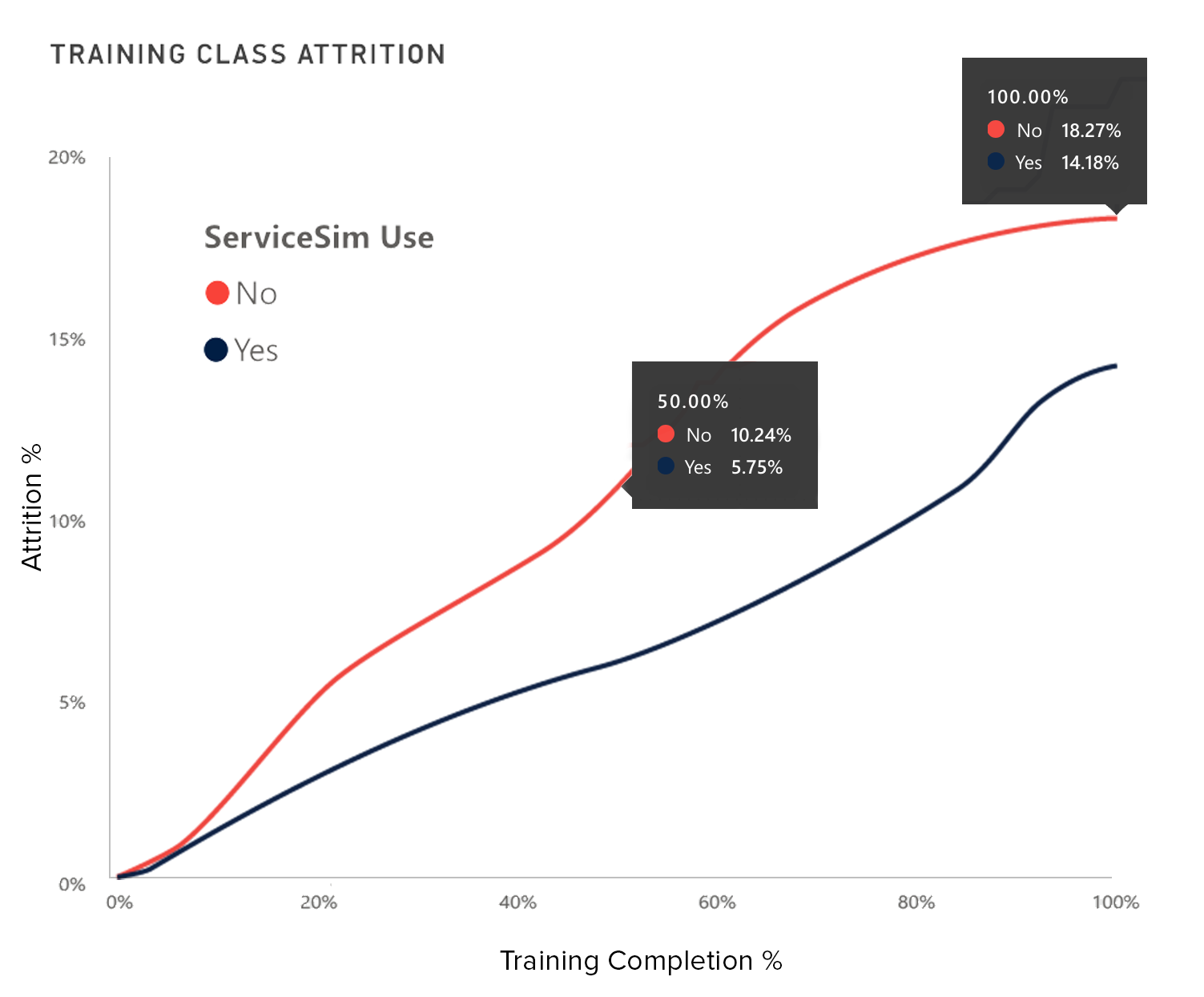As a supervisor or executive overseeing a contact center, you know that the success of your operation relies heavily on your agents’ performance. Your agents are the frontline of customer interaction, and how well they handle inquiries, solve problems, and create a positive experience directly impacts your company’s reputation, sales, and customer retention.
But achieving high performance in your contact center isn’t just about hiring the right people—it’s about equipping them with the right training. The quality of your training program has far-reaching effects on your business, from reducing turnover and minimizing costs to improving customer satisfaction. Here’s how you can get more out of your contact center by investing in better training.
1. Better Retention: Reduce Anxiety and Improve Job Satisfaction
Agents who are properly trained enter the job with greater confidence. They feel prepared to handle customer inquiries and have the skills to deal with challenging situations. This preparedness reduces the anxiety and stress that often come with the job, especially during high-pressure moments.
When agents feel competent and in control, they are more likely to enjoy their work. This leads to higher job satisfaction and a lower likelihood of burnout or quitting. By reducing turnover, you spend less time and money on recruiting, interviewing, and onboarding new agents. The result? You retain experienced agents who continue to add value over time, and your investment in training pays off in the long run.
High turnover is one of the most costly challenges in contact centers, and it’s often rooted in poor training. Agents who feel overwhelmed and underprepared are more likely to leave. However, by prioritizing better training, you create an environment where agents want to stay and grow.
2. Shorter Time to Proficiency: Get Agents Up to Speed Faster
A well-prepared agent reaches proficiency faster, and that means they become a contributing member of your team in less time. Better training reduces the time agents spend in the learning phase and allows them to move into full productivity sooner.
When agents are properly trained, you cut down on the extended training periods often required for agents to gain confidence. Instead, with the right foundation, they are ready to handle live customer interactions sooner, saving your organization time and money on lengthy training programs.
Download Now: Your Roadmap to Successful AI Implementations in the Contact Center
By reducing the time to proficiency, you not only save on direct training costs, but you also improve operational efficiency. A faster ramp-up time means your team can handle more calls and provide better service without the lag of inexperienced agents still learning the ropes. This rapid readiness translates into measurable improvements in your contact center’s overall performance.
3. Better Overall Customer Service: Enhance the Customer Experience
The ultimate goal of any contact center is to provide exceptional customer service, and the quality of training has a direct impact on how well your agents meet that goal. Well-trained agents have the knowledge, confidence, and soft skills needed to deliver a superior customer experience.
When agents are fully prepared, they are better equipped to resolve issues quickly and effectively. They know how to navigate customer conversations, offer solutions, and leave customers with a positive impression. This improved service quality not only leads to happier customers but also has a ripple effect on your business:
- Increased sales: Satisfied customers are more likely to make repeat purchases and take advantage of upselling opportunities offered by confident agents.
- Improved customer retention: Customers who have positive experiences are less likely to switch to competitors. Strong service leads to stronger loyalty.
- Better reputation: Word-of-mouth and online reviews can make or break a business, and great customer service will fuel positive feedback.
Investing in better training means your contact center becomes a key driver of customer satisfaction and revenue growth. Well-prepared agents lead to better conversations, more successful interactions, and a boost in your company’s overall reputation.
Maximizing the Value of Better Training
To fully capitalize on the benefits of improved training, consider these strategic steps:
- Invest in comprehensive onboarding: Don’t rush through the initial training phase. Equip agents with both the technical skills and soft skills they need to succeed.
- Use blended learning methods: Combine classroom learning, hands-on experience, and ongoing coaching to reinforce training in a dynamic and engaging way.
- Leverage technology: Use contact center technology like AI-driven simulations and real-time analytics to offer agents continuous feedback and growth opportunities.
- Foster a culture of learning: Encourage ongoing development and offer regular refresher training sessions to keep agents sharp and motivated.
Training isn’t just about getting agents through the basics; it’s about setting them—and your entire contact center—up for long-term success. When you invest in high-quality, targeted training, the benefits compound: reduced turnover, shorter training periods, and better customer service.
Ultimately, better-trained agents are happier, more efficient, and more likely to deliver exceptional service, directly impacting your bottom line. By focusing on effective, streamlined training, you can maximize the value of your contact center and drive results that make a lasting difference.
SUBSCRIBE FOR EMAIL UPDATES

